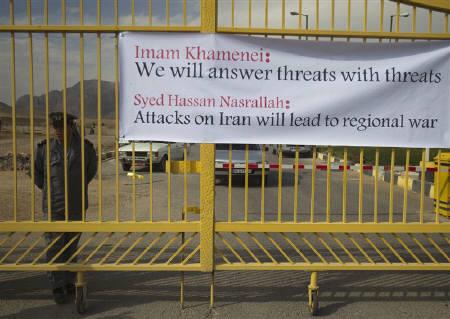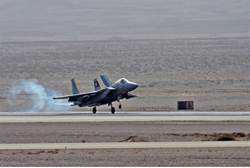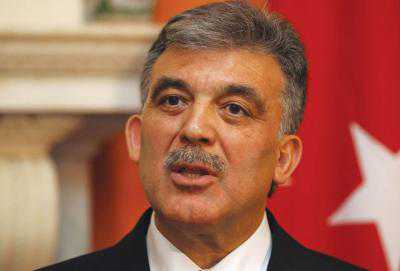By Louis Charbonneau
NEW YORK | Wed Nov 16, 2011 4:09am IST

(Reuters) – An adviser to Iran’s Supreme Leader said on Tuesday that Tehran was willing to share its controversial nuclear technology with neighboring countries, suggesting it could help Turkey build an atomic power plant.
The United States, European Union and their allies suspect Iran is trying to develop nuclear weapons and, along with the U.N. Security Council, have imposed sanctions to try to stop it from enriching uranium. But Tehran says its nuclear program is to generate electric power and refuses to halt it.
“Iran developed a very sophisticated nuclear science and technological capability, which we are quite ready to share with … neighboring countries and friendly countries in the region,” the adviser, Mohammad Javad Larijani, said.
“Turkey is for years trying to have a nuclear power plant but no country in the West is willing to build that for them,” Larijani told reporters. “This is true for our Arab (neighbors) in the region.”
“We are ready to cooperate with them in this regard, while within the NPT.” He was referring to the 1968 nuclear Non-Proliferation Treaty, which aims to prevent the spread of atomic weapons technology.
“We can produce (nuclear power plants) together, share the electricity,” he told Reuters in an interview. “This is also a source of income for us. It is not (just) Westinghouse that can build a nuclear facility, or Canada. Islamic Republic of Iran also is ready to build (a) nuclear facility.”
“Also we can produce fuel,” he said. “We think about this commercial value in the future.”
Larijani said Iran did not have a “concrete proposal” for nuclear cooperation with Turkey or another state at the moment though he said Tehran had made its willingness to help known.
There was no immediate response to a request for a reaction to Larijani’s remarks from the Turkish U.N. mission.
IAEA REPORT ON IRAN A “DISGRACE”
Larijani said Iran was also willing to cooperate in the nuclear field with countries outside the region, like Brazil.
“In some areas Brazil is ahead of us, in some areas we are ahead of Brazil,” he said. “So we can cooperate as well.”
Both Turkey and Brazil voted against a fourth round of U.N. Security Council sanctions on Iran over its nuclear program in June 2010.
Turkey has ambitious plans to build up a civil nuclear production capability and has been in talks with Russia and Japan about it. Japan’s Mitsubishi Heavy Industries is is among the firms interested in a Turkish deal.
Last year Turkey awarded Russia’s Atomstroyexport a contract for the country’s first nuclear power plant at Akkuyu on the country’s Mediterranean coast.
Larijani is an adviser to Supreme Leader Ali Khamenei, head of Iran’s High Council for Human Rights, an adviser to Iran’s chief justice, and head of a mathematics and physics institute. He is also the brother of Parliament Speaker Ali Larijani.
He is in New York ahead of a planned vote by the U.N. General Assembly’s human rights committee on a resolution condemning the human rights situation in Iran.
Larijani’s comments on the nuclear issue came a week after the U.N. atomic watchdog issued a report saying Iran appeared to have worked on designing a nuclear weapon.
Larijani described the International Atomic Energy Agency’s report as “a disgrace to the professionalism of this institution.”
He made clear, however, that Tehran’s position on the crackdown against pro-democracy demonstrators in Syria, Iran’s principal Arab ally, was very different from Turkey’s. Ankara has sharply condemned the crackdown, which began in March and has killed over 3,500 civilians according to U.N. figures.
“The best way is to leave the Syria affair to the Syrian people themselves,” he said. “We are against international meddling in this affair.”
He accused the United States and other Western countries of supporting the opposition in Syria with weapons, an accusation that Damascus has also hurled at Washington and its allies.
Larijani rejected Saudi accusations that Iran was fomenting unrest in Bahrain and reiterated Tehran’s denial of U.S. and Saudi allegations last month that Tehran was behind an alleged plot to assassinate the Saudi ambassador to Washington.
(Additional reporting by Patrick Worsnip; Editing by Eric Walsh)
via Iran ready to help Turkey with nuclear plant – aide | Reuters.





